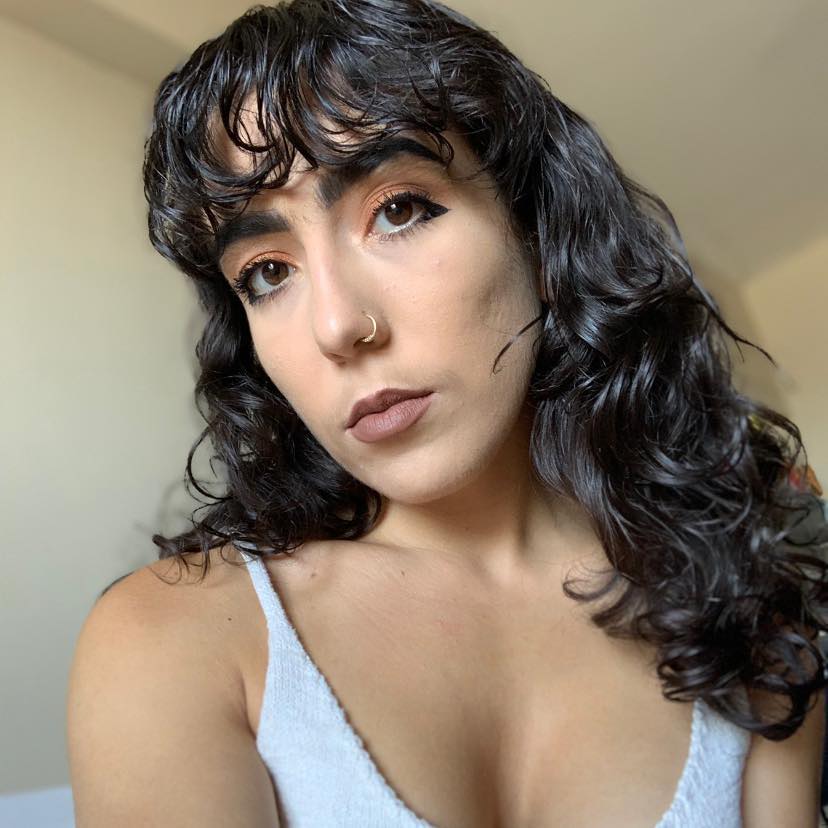Every year people join the Women’s Memorial March to remember Missing and Murdered Indigenous Women and Girls
Nearly 30 years ago, the annual Women’s Memorial March was born in response to the murder of an Indigenous woman on Powell Street in Vancouver. People come together every February 14 in the Downtown Eastside to remember and grieve the lives of murdered and missing Indigenous women and girls across the country.
Myrna Cranmer, who has been an organizer and Downtown Eastside community member since the 1960s, says very little has changed for Indigenous women and girls since then. They continue to go missing and be murdered at disproportionate rates, and they struggle under the weight of systemic violence and cyclical poverty.
Cranmer’s priority is making sure the families of those murdered and missing women and girls have a place to grieve and find support.
“That’s the only time of year that they get to mourn their loved ones,” says Cranmer. “I don’t believe they’re given any other time, so it’s a march of grieving, a march of remembering. It’s a march of creating a safe space for them to be able to grieve.”
Every year, she makes a list of the Indigenous women who have died or gone missing in the Downtown Eastside to ensure they are remembered — Cranmer collects this information from community organizations like WISH and Atira Women’s Resource Society.
“We have lost 50 women this year, and that is only from three or four organizations [submissions],” she says. “I am sure the number is higher, and 50 is still huge.”
For Cranmer, hosting the march “becomes worth it when you see the families kind of shake off their sorrow again in their own space and be able to march and laugh again.”
“So many of our women have died that haven’t been able to have memorial services, able to have funerals,” says Cranmer. “Tonya Hyer was murdered with all the cameras there, and they still haven’t caught the murderer.”
Hyer, 45, lived at the Gastown Hotel on Water Street run by Atira. She worked as a counsellor at the Downtown Eastside Women’s Centre and as a shelter resource worker at the Lookout Society. On January 24, she died of her injuries after being beaten in her apartment.
Hyer is just one of the many missing and murdered Indigenous women and girls who will be remembered on February 14. Cindy Martin, whose sister participated in the march last year, hasn’t been found after two years of being missing. Twenty-one-year-old Lisa Young was murdered in 2002, but spent over a decade missing. In 2015, a 55-year-old woman was killed on Vancouver island with little coverage of her death.
Cranmer turned 70 last November, and in all her years of activism on behalf of MMIWG, “not much has changed.”
“We began marching because we wanted an inquiry, and we’ve had two [reports] that have been dismal,” she continues, referring to the National Inquiry into Missing and Murdered Indigenous Women and Girls whose findings were released in 2019.
“Mothers were sent a part of their daughter’s bone. All those millions and millions of dollars getting all that DNA, and [Pickton] was only convicted of six murders. We have sisters and mothers bringing up the children of murdered women. No help or recognition there.”
Dr. Balbir Gurm is a facilitator for the Network to Eliminate Violence in Relationships and nursing faculty at Kwantlen Polytechnic University. She says “their social location is what makes men think they can harm Indigenous women in Canada.”
Gurm suggests the provincial government introduce a major campaign “about what a healthy relationship across genders and sexuality is so that everybody understands that we are equal, we are all human beings, and we don’t have the right to oppress others.”
“I think we just all need to work together to show that we want an equitable society and that everybody is equal and we’re willing to stand up for those that are oppressed. That’s one of the reasons it’s so important to show our support for the Memorial March,” she says.
Cranmer urges British Columbians to safely participate in the march, whether virtually or in person in the Downtown Eastside, and to rally on behalf of Murdered and Missing Indigenous Women and Girls.
“I can’t not ever be a part of this march because I remember a lot of those women that were killed by Pickton, and I remember a lot of the women that were killed in the Downtown Eastside,” she says. “We march to remember.”
The march will begin a ceremony and speeches at Carnegie on Main and Hastings before making stops to commemorate where missing Indigenous women and girls were last seen or found. The afternoon will close with a healing circle at Oppenheimer Park and a social distanced community feast at the Japanese Language Hall. Everyone who physically attends will be expected to wear a mask and keep a two-metre distance from people outside of their bubble. To attend virtually, watch the live stream on the Facebook event page.
The 30th Annual Women’s Memorial March will be on February 14 from 10:30 AM to 4:00 PM, starting at Main and Hastings.




